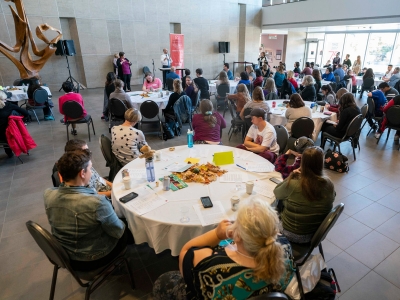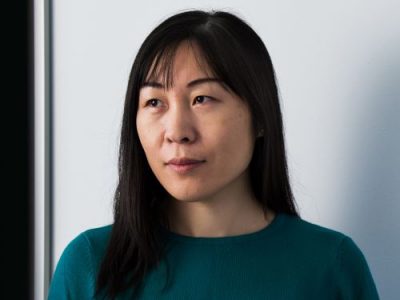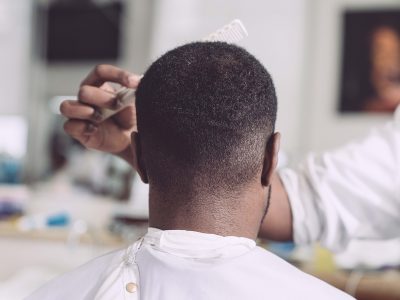By Joseph Mathieu
Although he still considers Pride important, Carleton Prof. Dan Irving’s relationship to the annual event has shifted over time.
“When I first came out as queer and trans, and had begun my transition, the event meant a lot to me,” he says.
“It provided a queer oasis from heteronormative society, as well as an opportunity to attend events, films and performances, and to spend time with friends.”
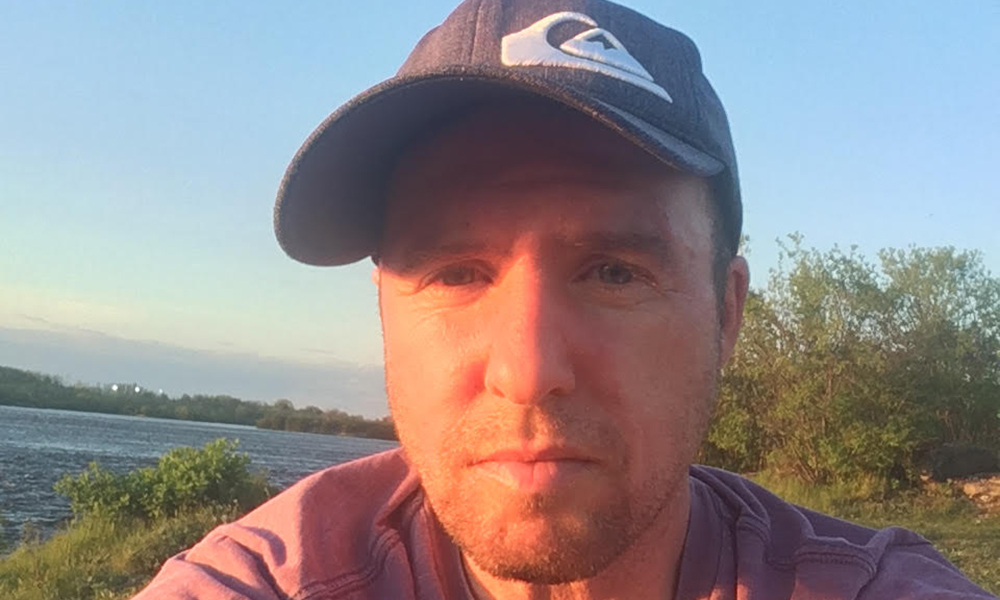
Prof. Dan Irving
But over time, he has also identified difficult aspects of Pride. It can sometimes feel like a burden, as if one must perform happiness around the intimate details of one’s life, while hetero and cis people have the privilege of hiding under the cover of what has been, and is ongoingly, naturalized. This can lead to feelings of alienation and shame.
Irving, who is cross-appointed to the Pauline Jewett Institute of Women’s and Gender Studies (PJIWGS) and the Institute of Interdisciplinary Studies (IIS), teaches in their respective Sexuality Studies and Human Rights & Social Justice programs. He says Pride does acknowledge and represent the presence of 2SLGBTQ+ people, but we must always ask ourselves: whose lives are being represented and whose are not?
Inclusion is an ongoing process that must draw from the work of Indigenous scholars and activists, as well as Black and women of colour feminists, and take into consideration the influences of settler colonialism, whiteness, neoliberal productivity and class, and ableism.
Irving conducts research in the interdisciplinary fields of Transgender Studies, as well as Critical Masculinity Studies. He has focused on trans and two-spirit experiences of unemployment and underemployment, and on whiteness, masculinity and the emotional landscapes of white men, which he calls the “Eminem Project.”
“When we speak only of gender and sexuality as sites of 2SLGBTQ+ oppression, we are privileging whiteness and other privileged social locations,” he says.
“We are implying gender and/or sexuality is the sole basis of oppression. But this isn’t the case for Indigenous people, people of colour, anyone on the feminine continuum, poor people and people with disabilities.”
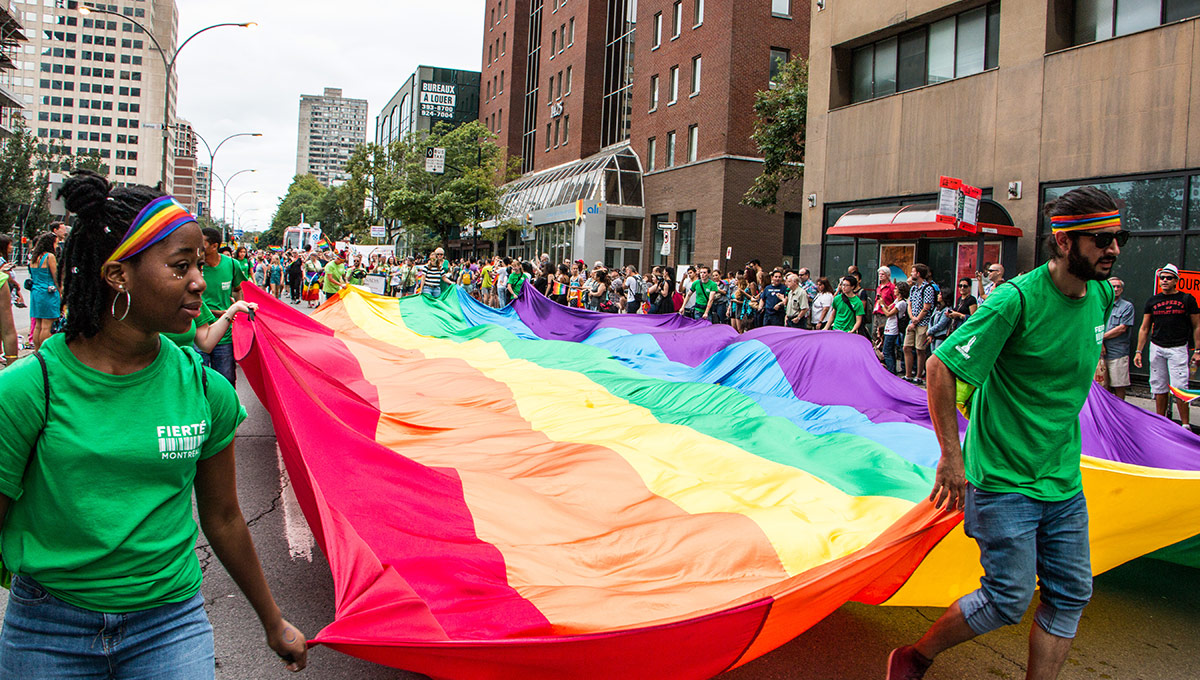
Volunteers wave a big rainbow flag during Montreal’s Pride March in 2016
Irving says Carleton and other post-secondary institutions can make 2SLGBTQ+ members feel more included and celebrated if they enact this intersectional analysis as meaningful practice. They could also hire more clinicians and mental health practitioners who are knowledgeable about the intersections of sexuality, class, gender and race.
Universities should also support critical scholarly programs that address such interlocking oppressions. This support includes being willing to defend the utility of such programs publicly in a society that consistently undervalues Arts and the Humanities.
“It’s incredibly important to many individuals to see themselves and their lives reflected within their places of study and work,” says Irving.
“Representation works to combat invisibility or the politics of erasure, and it lends symbolic recognition to marginalized groups within the university and in broader society.”
During Pride Month, Carleton University is celebrating some of the many achievements and contributions of our 2SLGBTQ+ community members. Visit our Pride Month page through the month of June to read new stories about them.
Tuesday, June 22, 2021 in 2SLGBTQ+, Research, Women's Studies
Share: Twitter, Facebook
